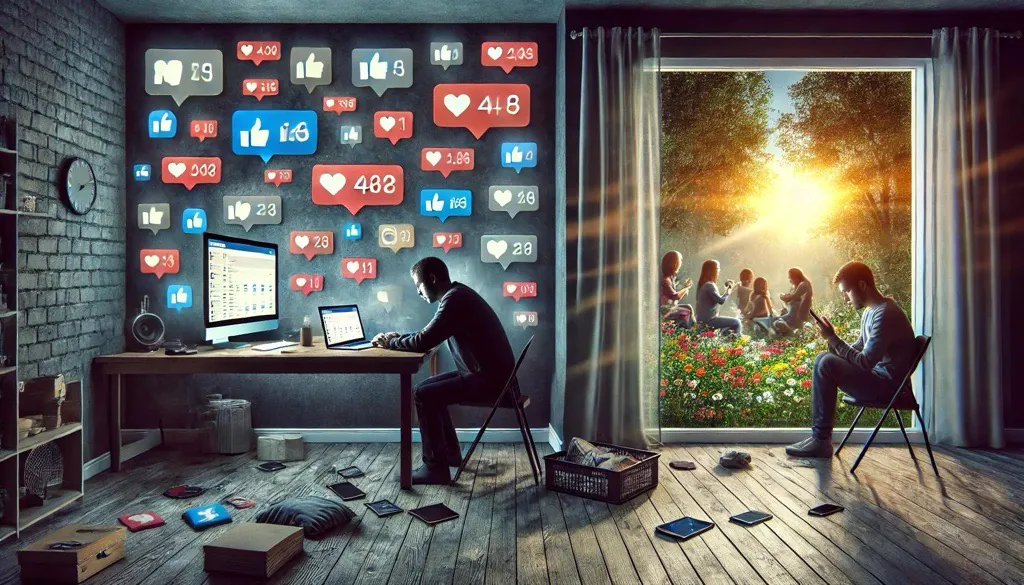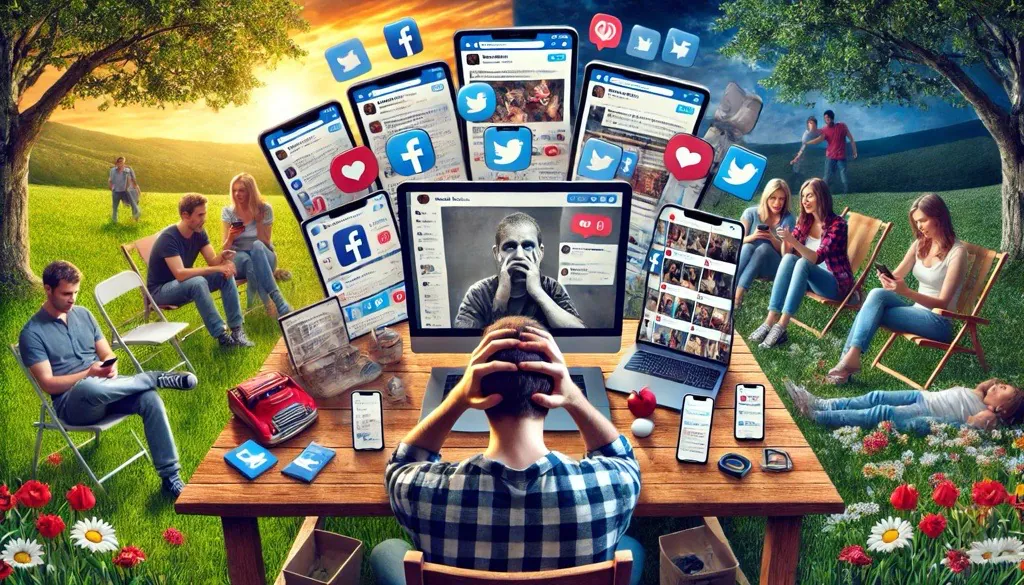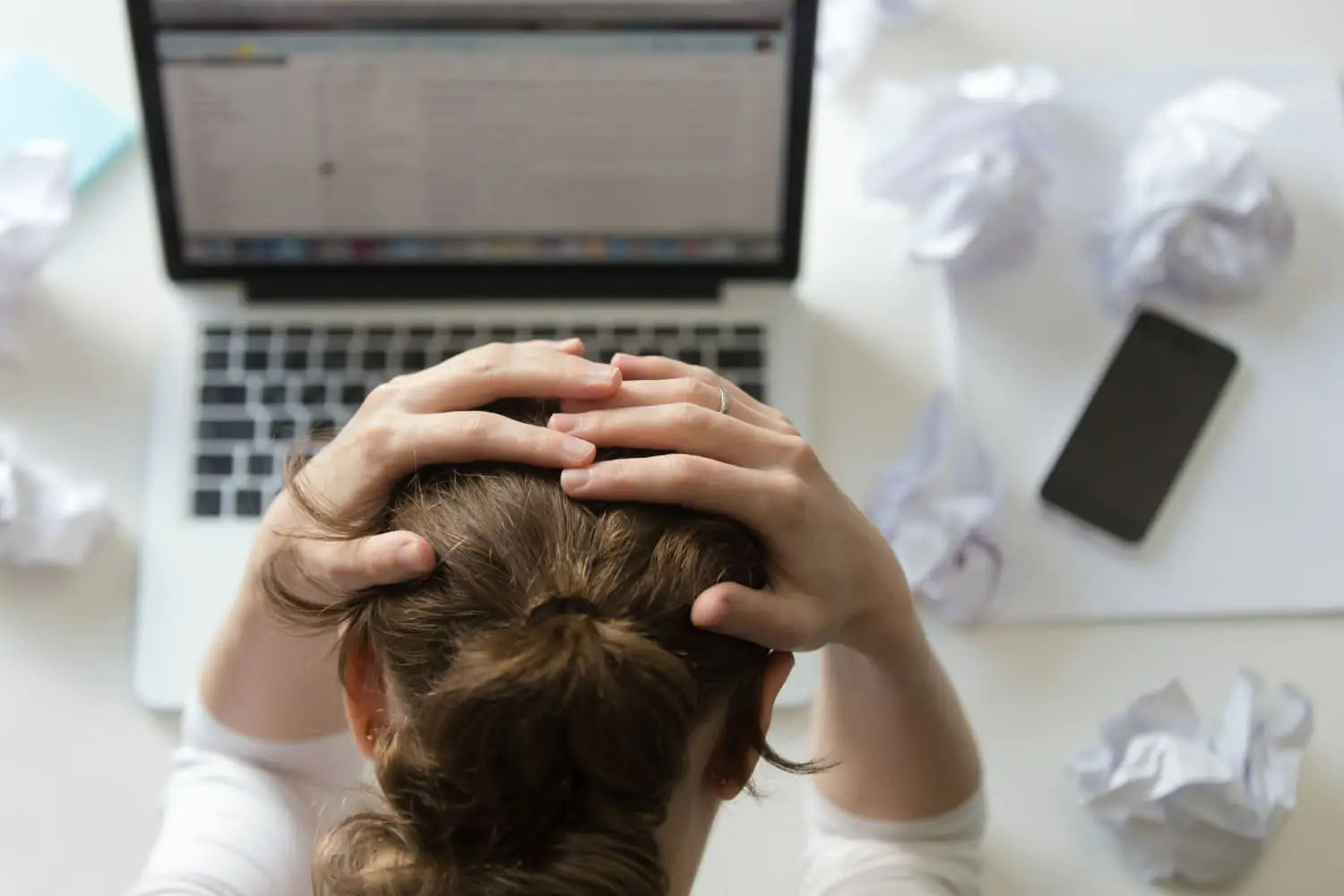
What are the Harms of Social Media?
Although social media has become a part of our lives, its use above normal can cause social and psychological problems in people. Psychological addictions such as FOMO (fear of missing out) can be encountered, especially in adolescent children and young people. In the long run, individual and social damages may occur with the weakening of social relations.
Psychological Effects of Social Media
While social media enables people to maintain their social relations with a larger audience, it can also cause the formation of an artificial world. The glamorous lives and aesthetic appearances that people encounter in this artificial world; It leads to psychological problems such as feeling of inadequacy and shopping addiction. Some people may also have health problems due to body dysmorphic disorders.
Anxiety and Depression
Studies on the effects of social media have shown that social media use for more than 3 hours a day, especially in children between the ages of 12-15, can lead to various psychological problems, including depression and anxiety. While social media provides access to more people and content, it can also facilitate access to bad and harmful content. Social bullying and lynchings can adversely affect a person’s mental state. The likes and comments received by the shared photos or content may cause the need for approval over time and negatively affect psychology in case of interest below expectations. Long-term use of social media can lead to isolation from real life, resulting in a more depressed mood in the person.
Dependency
Although the acceleration of access by social media is seen as a very positive development, it can lead to longer-term use over time due to the emotions it causes in people. The fear of missing out, which is expressed as FOMO, can cause a person to feel like they are missing out on the latest events on social media. People who struggle with this psychological problem may experience a sense of control over the agenda, their notifications, and other people’s posts at any time. In addition, when they stay away from social media, they may think that they will fall behind and be excluded from other people. Product promotion shares of influencers, which are among the advertising strategies of brands, may reveal the problem of shopping addiction in some people. The type of addiction may differ depending on variables such as the person’s other psychological problems and the environment in which they live.
The Effect of Social Media on Social Relations
Social media can positively affect social relations by accelerating communication between people and providing access to more people. However, the comfort of communication in the virtual environment may cause people to experience stress and difficulty in face-to-face communication, and may result in the weakening of real-life relationships. In relationships maintained in social environments, the relations of interest experienced due to the prestige of high-follower and interactive accounts may cause the sense of sincerity to atrophie. A world where communication is maintained only with words and emojis; Gestures and facial expressions may not adequately meet the flow of emotions created by changes in tone of voice.
Negative Effects on Real Relationships
Social media can offer a more comfortable communication environment for people who cannot be assertive in social environments and have problems communicating. The negative side of this situation is that by meeting the need for communication in social media, it can be seen that the person leads a life that is further away from real life. Man is a social creature and usually needs to interact with the people he encounters in daily life. Preferring to browse social media while waiting at places such as buses and toll booths prevents these small interactions. Over time, it can cause human relationships to shrink and be restricted by social media. This may result in an increase in the feeling of loneliness in people.
Misleading Identities and Social Trust Issues
On social media, users can create a profile of people who want to be, not what they are, in order to make a good impression on other people. People’s posts may only reflect the positive aspects of life. These people, who create an artificial life, may have different characteristics than they do when they do not reflect them to humans. In addition, it is possible to create fake personas belonging to a completely non-existent person on social media. Such accounts can deceive users for financial gain. In addition, these types of accounts can be used by bad actors to manipulate and harass underage users through threats and blackmail. Environments that enable these situations damage the environment of trust that should be formed between people. It can also lead to trust issues in real-life relationships.
Effects of Social Media on Mental Health
The increase in screen time due to social media may cause some problems in maintaining cognitive activities. Variable and stimuli such as bright light and images that are exposed during the mental development process can increase the risk of developing learning problems such as distraction. Short videos watched on social media, viral images; It triggers dopamine overload, which also occurs in addiction problems. This leads to longer usage times over time. It can disrupt the education process, especially for students in the education process.
Distractibility and Learning Disabilities
Studies on social media have shown that people with long-term screen use have a decrease in attention span and difficulty in focusing. Since children and young people have a more intense interest in activities that they enjoy, it is likely that the time allocated to education will be shortened. Homework, the need to stay away from tools such as phones and computers during the study process and the encouragement of this by the family can cause anger problems in young people. With the use of social media for long periods of time, failures may occur in education life.
Sleep Disorders
Exposure to light during phone use in bed before sleep can disrupt the body’s natural cycle. The sleep and wake cycle that occurs in the body with the natural flow such as the emergence of sunlight and the sunset is necessary for the person to rest. Not sleeping in a dark enough environment during sleep can disrupt the process of renewing the body and regulating the mind. The use of the phone before sleep or when waking up at night can interrupt the sleep process.

Special Effects of Social Media on Young People
Adolescence and young adulthood refer to the periods in which a person develops physically, spiritually and personally. In these young people, whose identity formation continues, bad stimuli and mental problems can cause problems in the establishment of personality. In this process, mental changes may also be affected by external factors. Due to this artificial world in which aesthetic appearance is idealized, there may be an increase in problems that may affect health, such as malnutrition. In order to prevent such situations, it is recommended that parents examine the benefits and harms of social media in detail and provide a controlled usage area for their children.
Self-Esteem Problems and Body Image
The glamorous lives created by users on social media, beautiful and aesthetically pleasing bodies can cause distortions in the perception of reality. The fact that young people try all kinds of ways to achieve these lives they aspire to, and the endless trust in the suggestions of these people can lead to the formation of bad habits. In addition, it is possible that the concepts of right and wrong are shaken and cannot be evaluated in the right context. Young people and children who do not have the opportunities they see may have self-confidence problems. They may tend to see themselves as outcasts and inferior to other people. This can lead to the normalization of behaviors that can be described as bad by young people in order to adapt. For example; Stealing an item that everyone sees but cannot obtain can be considered normal in the child’s mind. In addition to these, praising thinnerness and aesthetic appearance in social environments can lead to nutritional problems in young people.
Social Media and Peer Bullying
Comments on social media can become more cruel when people hide behind the profiles they create and the comfort of being an anonymous personality. These cruel comments can find more comfortable supporters and turn into a lynching environment. Exposure of children and young people to this type of behavior at a young age can cause them to have problems in real life due to peer bullying.
Ways to Get Rid of Social Media Addiction
Some measures can be taken to eliminate social media addiction and the problems it causes. Here are some suggestions for ways to get rid of social media addiction:
- Increasing social relationships in real life can be effective in reducing dependence on social media. Relationships with people can be increased by participating in social and cultural activities.
- In order to intervene in psychological problems that arise with the use of social media, it may be preferred to get professional support with face-to-face and online doctor examinations when necessary.
- By restricting the use of social media, screen use can be reduced over time. If a young person or child has an addiction problem, the management of this situation should be carried out under the control of the parents.
- By engaging in artistic activities and hobbies, quality use of time can be ensured. Handicrafts, painting, sculpture, musical instruments can be preferred for people of various interests.
- In order to minimize the influence of young people and children on social media, it can be ensured that they take real people as role models. People who have lived in the past or are still alive and who can be taken as good examples can be introduced and these people can be supported to adapt their success to their lives.
- Activities that involve interaction with nature can be increased. Activities such as nature walks and sea trips can be done.
- In order to prevent screen addiction in children and young people, it may be preferable to keep the child away from social media until the age when they can use social media correctly. Postponing the first interaction with the screen until as much as possible can help maintain control.
- It may be a more accurate approach to make a conscious use by making a detailed inquiry about what are the harms and benefits of social media.




